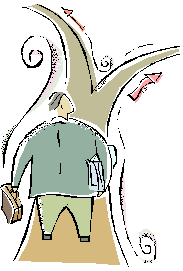 Breaking Down the Walls in a Juvenile Detention Center with a Writing Workshop
Breaking Down the Walls in a Juvenile Detention Center with a Writing Workshop The teens in orange jump suits glare at me as I enter the unit of the lock-down juvenile detention facility. The girls wear their hair pulled back with rubber bands. I cringe when I see the rubber bands. They are the same type of rubber bands that I wrap around the pages of my novel in progress and they are in the girl's hair. Personal hygiene and generic toiletries sit on the window ledge. The unit smells like cleaning antiseptic and laundry detergent. I chew hard on my gum and try not to inhale too deeply.
Twelve pairs of eyes glare at me.
Distrustful.
Angry.
Hostile.
The girl's dare me.
"You can't work with me.
I am bad.
I am a criminal."
I pull out my collection of poetry books.
The routine is the same every Monday when I arrive to facilitate the poetry workshop.
The girls are released from their cells as I enter the unit. They sit in black plastic seats at the tables that weigh a hundred pounds each so no one can pick them up and throw them.
I quickly go through the three rules. "Write from the heart," I say. "Write honestly. No sex. No violence. And no profanity."
I try to ignore the glares coming at me. I know the magic that will happen in the next hour, and how the glares will turn to tears and smiles. But, even so, it's never comfortable in the first ten minutes as twelve teenage girls glare at me.
I begin by sharing with the girls two poetry collections written by youth previously at the detention center. The poetry has been selected from the workshop and then published by the Miller Trust Art Exhibit Program in small books which are distributed to the community and the youth at the detention center.
I read:
In the eyes of my Mother,
I am a failure.
I am a juvenile punk
In the eyes of my Mother
I am a low-life punk.
I am not the son she knew.
I want to change
In the eyes of my Mother.
By the time the girls hear two or three poems, most of them are no longer glaring, and they are ready to write their experiences. However, there is always one girl who continues to resist. "I don't write poetry," she says.
"It doesn't have to rhyme. Just write from the heart. Write your experience." I say.
"I don't spell good,"
"Don't worry about the spelling. Just get the heart out there on paper. Your experience."
"I'm not a writer."
I listen to the girl's resistant words, and I hear what this locked up teen's heart is saying.
"I don't have anything to say."
"I'm not worth anything."
"Don't care about me."
"It's too risky to put myself on paper."
"I will not be vulnerable."
"You can do it." I encourage her.
After a few minutes, I look up and see her pencil moving across her paper.
The girls write and it is silent except for the occasional, "What rhymes with?" or "How do you spell?"
At the end of the hour, it's time for sharing the poems.
Some turn red as they read, others joke and laugh before reading, others tell us how bad their poetry is before reading stunning words of pain and loss.
Then, it is time for the girl who didn't want to write
"It's not very good," she says.
I wait.
"Do I have to?"
I nod.
The girl clears her throat. She shifts. And then she reads,
I am from nothing.
A hole in the wall.
An unnoticed fly on the ceiling.
I am from nothing
But I will not BE nothing.
My breath catches.
The magic of the writing workshop has taken hold. The pain is in the poem. The glare is gone.
When she is done, the girl asks me, "You coming back next week?"
"I'll be here," I say.
"So will I," she says. "I got thirty days."
Mindy Hardwick is a writer who runs a volunteer poetry workshop at Denney Juvenile Justice Center in Everett, Washington. She is the daughter of Chuck Hardwick, a mediator with Community Mediation Center. You can learn more about Mindy at her blog www.mindyhardwick.wordpress.com


















